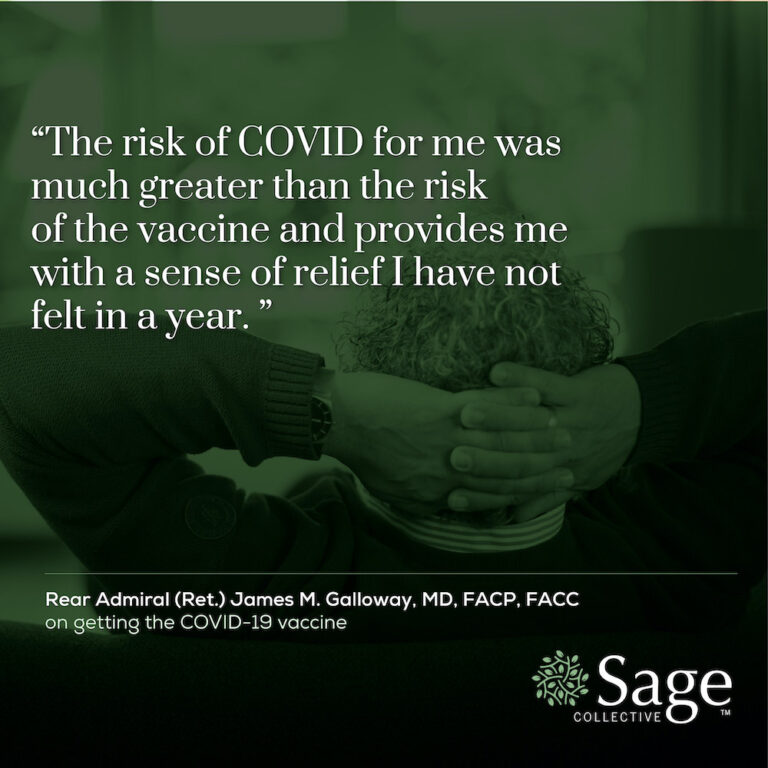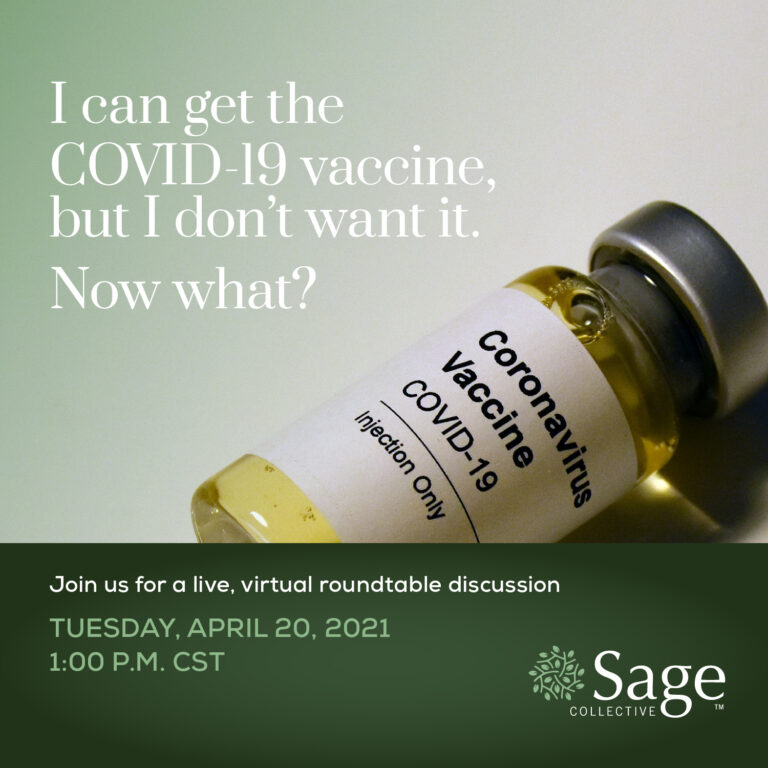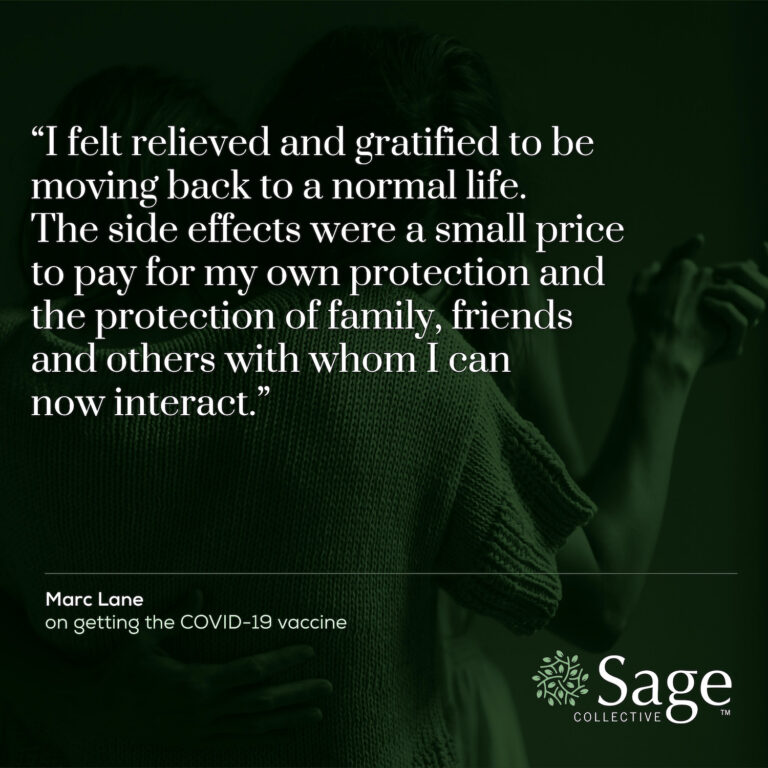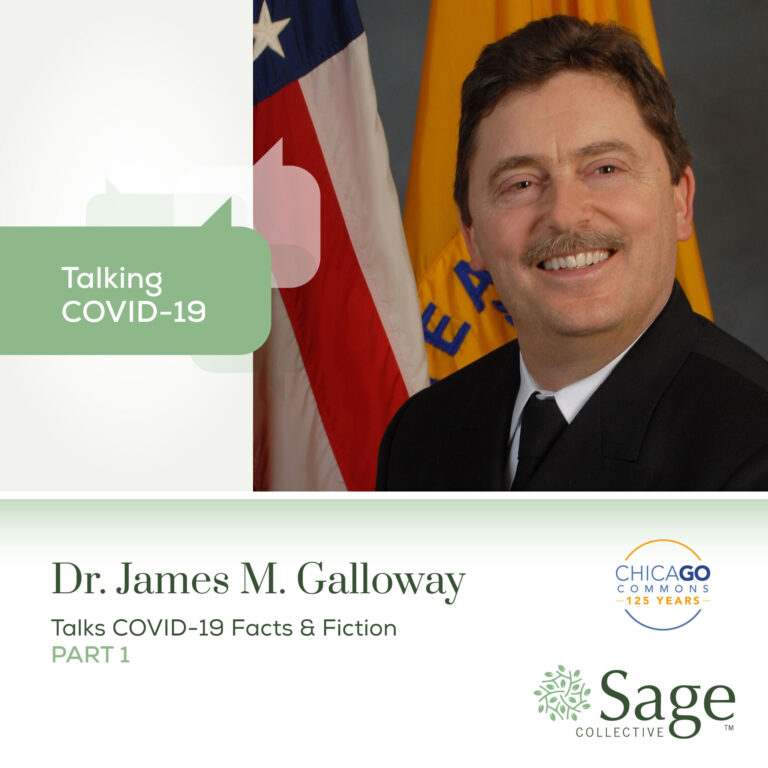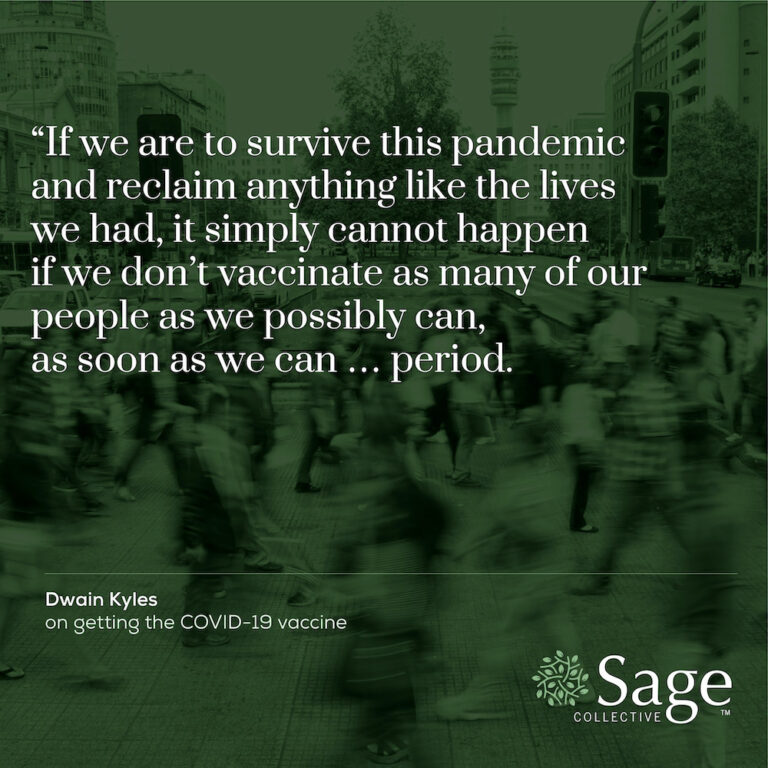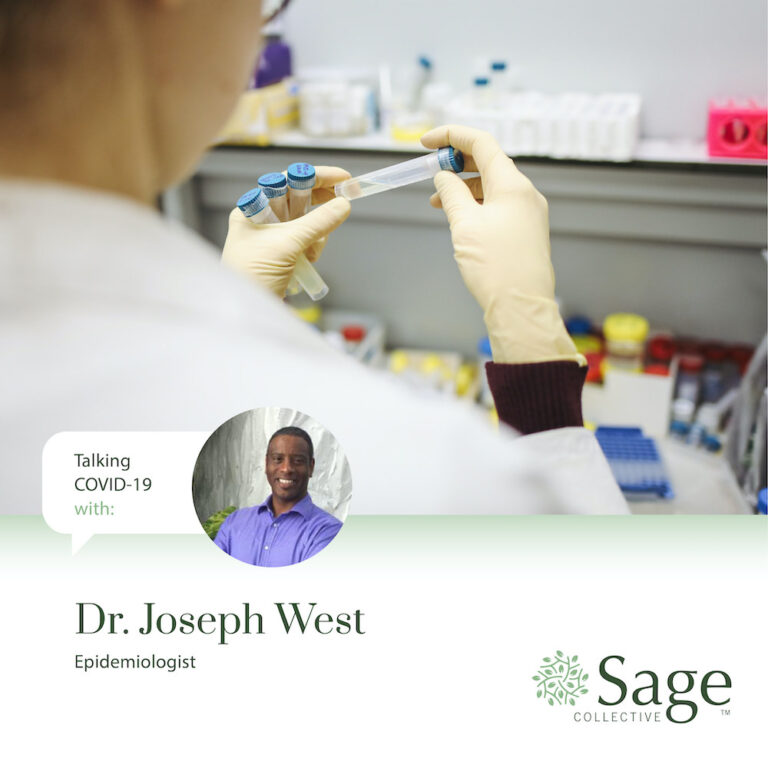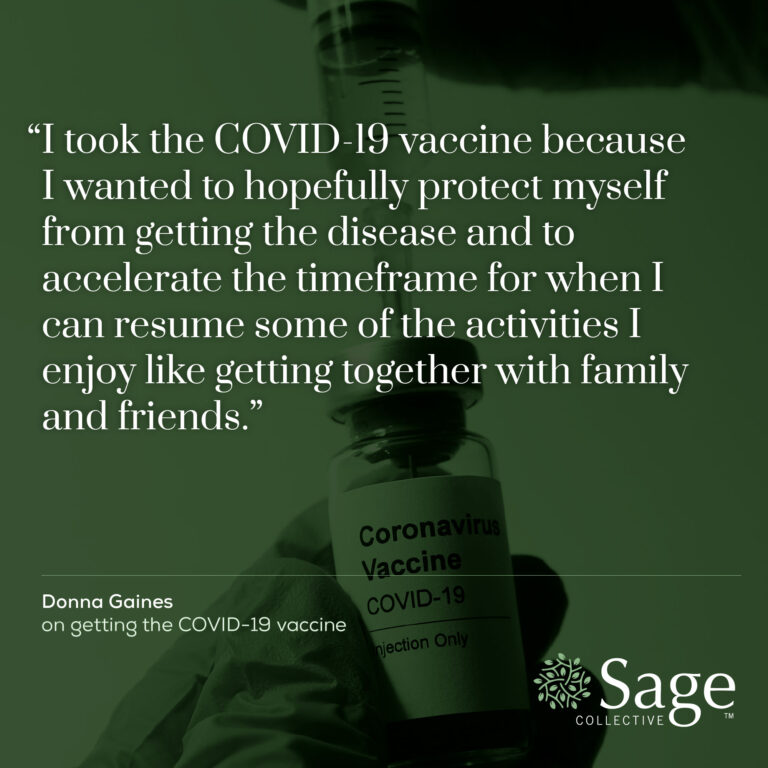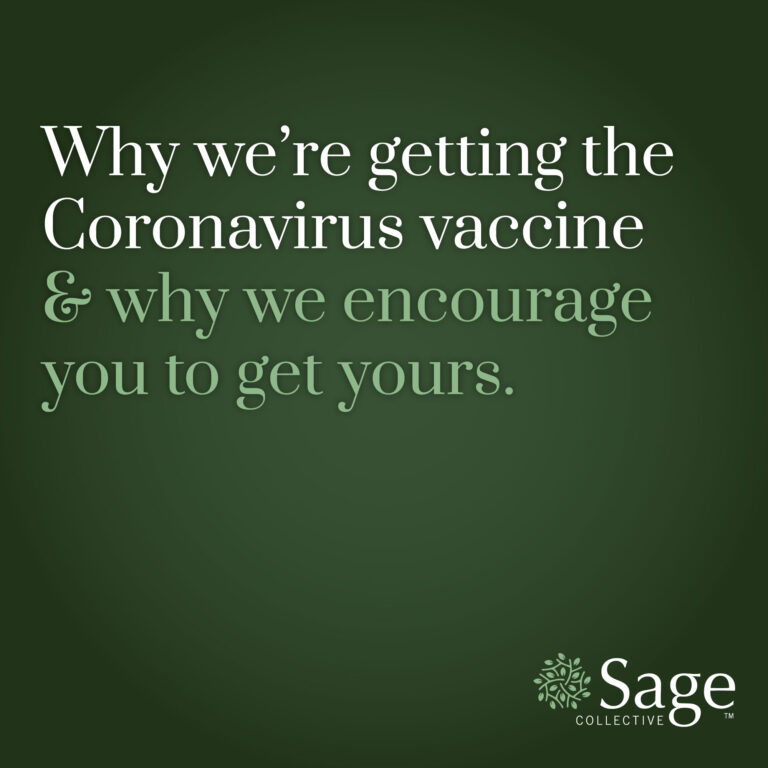Sage Collective is thrilled to have recently partnered with Chicago Commons to bring a live, virtual Q&A event to their community of older adults. The purpose of the event was to address both facts and myths regarding the COVID-19 virus and vaccination.
The live Q&A session, which was part of Chicago Commons’ Adult Day Service (ADS) Program, featured questions from the audience, answered by Rear Admiral (Ret) James M. Galloway, MD, FACP, FACC, with Monique Caradine serving as moderator.
Rear Admiral (Ret) James M. Galloway, MD, FACP, FACC is a former Assistant Surgeon General for the United States and a public health physician, as well as a member of the Sage Collective Leadership Team. You can find his full bio here. Monique Carradine is a professional broadcaster, author, podcastor, and certified money coach for women leaders and entrepreneurs with over two decades of experience.
In Part 1 of the Event Roundup, we review questions (and answers) related to deciding to receive the vaccine, and how the process works. For the sake of this recap, questions and answers have been edited for clarity and brevity.
MC: Let’s start with this question from an audience member — should I consult with my doctor first, before I get the vaccine?
JG: Generally, it’s not necessary to check with your physician unless you have a severe allergy to the vaccine or its components. However, if you’re hesitant or worried about getting the vaccine, and the vaccine’s relationship to your health and safety, it’s a great idea to talk to a trusted physician.
Groups who should absolutely consult with a physician to determine if vaccination is right for them include those with multiple sclerosis, those who are immunocompromised, those who are on blood thinners or who have a bleeding disorder, as well as pregnant or breastfeeding women.
MC: Another question we received — which of the vaccinations is “the best”? We know there are two pharmaceutical companies manufacturing vaccines (Moderna and Pfizer). Is there one that’s better than the other?
JG: Pfizer has been shown to be 95% effective in blocking symptomatic COVID-19. Moderna on the other hand has been proven to be 94% effective in the same area. So within the range of error described there, they’re equal, and no, one isn’t better than the other.
But I’d like to explain a little bit more about what that effectiveness means. You know, 95% effective — what does that mean? You can think about it as being that you are 95% protected from getting symptomatic COVID-19. But even more importantly, if you’re in the small 5% of vaccinated people who do get the disease, it’ll be mild, and present more like a cold or common flu. So essentially, this vaccine is 100% effective in preventing serious illness or death from COVID-19.
So if you go to a vaccination location, and they offer you a choice between these two vaccine companies, you can receive either vaccine with confidence, knowing that you will have an appropriate level of protection from both.
MC: Here’s another good question, which is about the fact that there are two shots required. Can you talk about why that is? And what happens if a person gets the first shot and perhaps waits longer than recommended to get the second one?
JG: Many of our immunizations, particularly childhood immunizations, require two or three shots. The reasoning behind that is when you get the first shot, it’s the first time the body is encountering or is exposed to what’s called an “antigen”, or that particular virus piece that we’re trying to immunize against. So there’s a mobilization, where the body’s immune system begins to work to develop a response to the newly introduced antigen. And the body will begin to develop a number of mechanisms to fight off that virus — however, because just one dose was administered, those mechanisms aren’t as strong as they could be.
So when you receive a second dose of the vaccine, you want to land in the ideal follow-up window in order to re-stimulate the immune system and to have the most effective, full-blown, full-body response.
But if somebody were to get one shot and not the other, for whatever reason, there is still effectiveness in just that one shot. The first shot for the COVID-19 vaccine alone produces somewhere between 50-60% coverage against serious COVID-19 symptoms. This coverage is obviously better than not having any protection — and it does provide significant coverage, just not as much as having that second shot and reaching the 94-95% coverage level.
It’s also important to note that you should receive both shots from the same vaccine company, whether that’s Moderna or Pfizer.
MC: The next question is: when are you fully vaccinated against COVID-19? The key word there is “fully” vaccinated — is there such a thing as being fully vaccinated?
JG: Right now, it’s too early to say. This is a new disease, and there’s a chance that it may become a routine seasonal infection, meaning that it will recur every year. That would mean that, much like the flu, we would need to get a shot every year.
MC: Once someone is vaccinated, do they still have to wear a mask?
JG: I’ll refer you to current CDC guidelines here. Currently, the CDC recommends maintaining mask wearing for the foreseeable future, unless you are in a private space where everyone around you is also fully vaccinated. This is in part because of new, more contagious variants of COVID-19 becoming widespread globally, and also because while you’re immunized against the virus, there’s still a chance you can spread it to those around you who are not. So yes, it’s important to continue wearing a mask and washing your hands and following social distancing guidelines.
Stay tuned for Part 2 of the Q&A recap next week, where we’ll address the distrust of the COVID-19 in Black communities, and share more reasons why vaccination is of the utmost importance to your health and safety.


